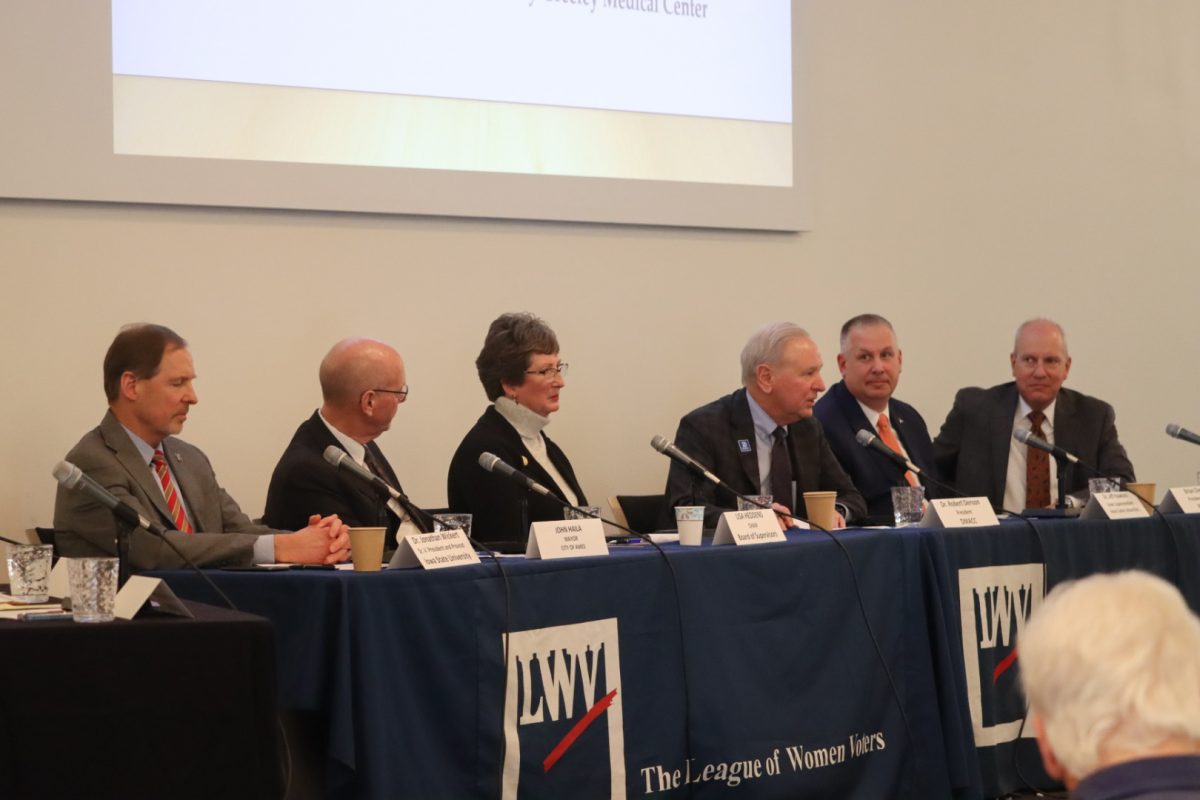Tabooing traditional values on campuses
October 22, 1997
For anyone who has examined parietals on American campuses over the last few decades, the evidence is stark.
Rules and regulations for students exist in form only, with nonenforcement the prevailing sentiment among university administrators. Consumption of alcoholic beverages at some colleges is an epidemic, with drinking orgies starting on Thursday and ending on Sunday. Coeducational dormitories are the norm, and sexual promiscuity is readily evident on many campuses.
For students with a traditional world view, the introduction to college life can be jarring. In fact, in a much-discussed drama at Yale this fall, five Orthodox Jewish students claim that dorm life is comparable to Sodom and Gomorrah.
The Orthodox students have asked to be excused from the university’s requirement that all freshmen and sophomores live on campus.
They claim that their religion’s rules of modesty and sexual abstinence until marriage are continually challenged in dormitories in which condoms are freely dispensed, alcohol is routinely consumed and shared bathrooms and showers are the norm. Yale’s administration has resisted the request, arguing in effect that the college’s rules apply to all students.
Presumably, the administration is saying that despite concessions to ethnic and minority groups over the last few decades, concessions to a conservative religious group will not be made. While the administration has a point in arguing for shared student experiences, it neglects to point out the kind of experience now demanded.
Open living arrangements, tolerance for homosexual activity and the general denunciation of religious convictions have been the vogue on campus for years.
It is hardly surprising that Orthodox Jews would feel uncomfortable and unwelcome in this atmosphere. Are Yale spokesmen suggesting that religious proponents either conform to secular standards or they are unwelcome at the university?
Clearly, there is a clash of cultures: The libertine view of society and ethical traditionalism are locked in irreversible conflict on campus. Is it lawful for colleges to create regulations that challenge the free exercise of religion?
Although the federal Civil Rights Act forbids institutions receiving federal funds from discrimination based on race or nationality, it does not include religion.
Whether religion is implicit in the act’s purview is a condition the courts will ultimately determine.
Richard Brodhead, the dean of Yale College, contends that Yale’s regulation is based on the belief that students learn about other outlooks by living in a community. “If you allow all groups based on affiliation or conviction to separate themselves from the whole university community, you open the door to all kinds of self-segregation that this place has worked very hard against,” the dean noted.
Ironically, during the period this story broke, The Chronicle of Higher Education ran an editorial by Rebecca Lee Parker, director of Ohio Unions at Ohio State University, in which she argues for separate ethnic housing.
According to her logic, ethnic separation serves the same purpose as fraternities, which have traditionally been organized with religious affiliation in mind.
Presumably, ethnic theme housing provides comfort and care for minorities estranged from others on campus.
Whether one accepts this argument or not, it is unquestionably a position embraced at a host of colleges and universities.
What the Yale position denies is already a reality. Moreover, the specific opposition to Orthodox Jews challenging university housing rules would on its face seem to be a suspicion of orthodox religious principles in general.
While Yale bends over backward to accommodate feminists, homosexuals and a variety of activists, it seems to be saying to Orthodox Jews, take it or leave it.
The other implicit message: Parietals that once reflected standards of deportment have been transmogrified into a prescribed way of thinking. Yale students are obliged to forego modesty. Alas, how can one maintain traditional Jewish law in sexually neutral bathrooms?
What this issue brings to the fore is the permissiveness often granted students on campus. In loco parentis is merely an anachronism.
A nontraditional orthodoxy permeates Yale and many other campuses — I might add —ÿin which tolerance exists for what is politically correct, and intolerance prevails for traditional religious adherence.
Herbert London is a humanities professor at New York University and president of the Indianapolis-based Hudson Institute.






